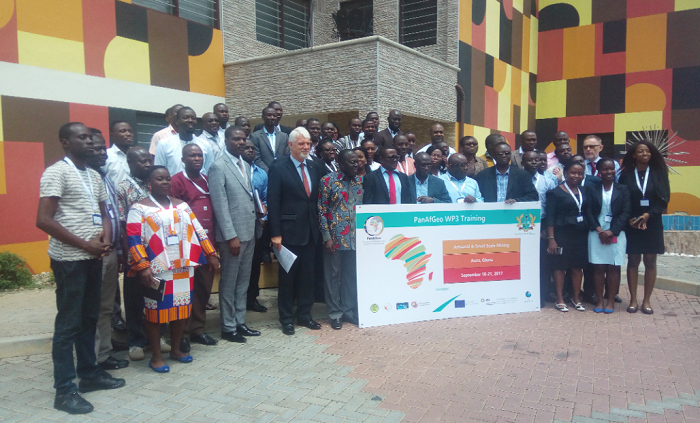
Plan to sanitise small-scale mining ready — Dep. Lands Minister
The country’s Multilateral Mining Integrated Project (MMIP) aimed at taming illegal mining and restoring sanity to the mining sector will be launched next month, a Deputy Minister of Lands and Natural Resources, Mr Benito Owusu Bio, has said.
According to him, the project would improve the mining sector by tackling illegalities and also dealing with the environmental scourge that illegal mining had inflicted on the country.
“The document for the project and the concept paper are all ready. Ongoing training of small-scale miners is part of the project. The way forward is sustainable mining,” he told the media in Accra yesterday during a workshop on the role geological scientists could play to make artisanal small-scale mining sustainable.
Sketchy details
The project includes using Marine Police to patrol the country’s major rivers, recruitment of more mine inspectors, reviving district mining committees and zoning mining areas for small-scale miners to mine under strict supervision.
Additionally, the University of Mines and Technology (UMaT) will be tasked to train about 2,000 persons to ensure that good environmental practices are embedded in the concessions of small-scale miners.
The integrated project also envisages tasking the Crops Research Institute of the Council for Scientific and Industrial Research (CSIR) to test soils in mining communities to prevent the growing of foods contaminated by chemicals used in mining.
The workshop
The three-day workshop brought together geological scientists and other mining and environmental experts from Anglophone West Africa to train the participants to be trainers for artisanal small-scale mine operators in Ghana and in the sub-region.
The EuroGeoSurveys, PanAfGeo and the Organisation of African Geological Surveys jointly organised the workshop with funding from the European Union.
Representatives from the Geological Survey Authority, the Minerals Commission, the Environmental Protection Agency (EPA), the Ghana National Association of Small Scale Miners and other civil society organisations are participating in the workshop.
Participants are expected to be exposed to detailed methods, tools, procedure and requirements for artisanal small-scale mining operations in Ghana among other objectives.
Tackling illegal mining
Speaking earlier at the opening ceremony, Mr Bio said the training was important to the country “given our recent heightened drive to bring illegal mining under control while we harness and optimise the potential of properly managed small-scale mining operations to promote socio-economic development.”
He acknowledged that although small-scale mining had contributed about a third of the country’s national gold production and created millions of jobs, it had been associated with significant negative impacts, including water pollution and land degradation.
Impressed
The European Union Ambassador to Ghana, Mr William Hanna, stated that the EU had been impressed by the commitment to root out illegal mining, which had previously been ignored.
“But at the same time, we have been asking ourselves what can be done to ensure that the people living in rural Ghana benefit from the resources that Ghana has in a sustainable way.
“Many people’s livelihoods are being taken away. How can we offer them a sustainable alternative,” he asked rhetorically.
